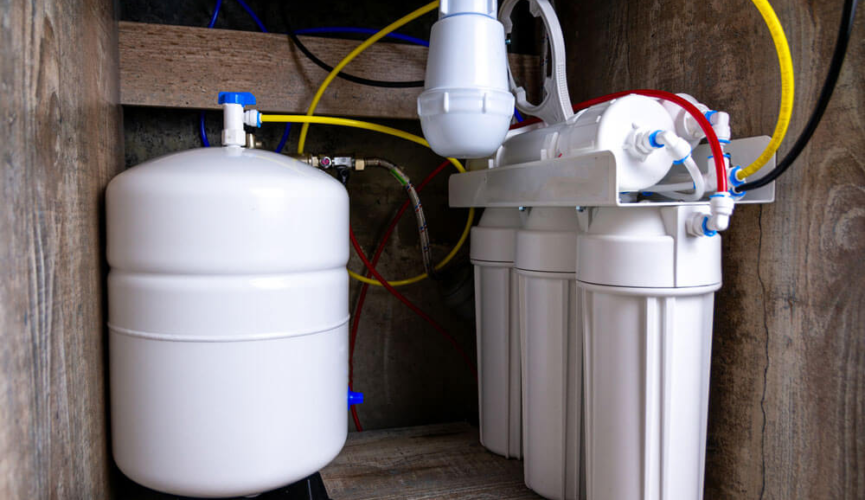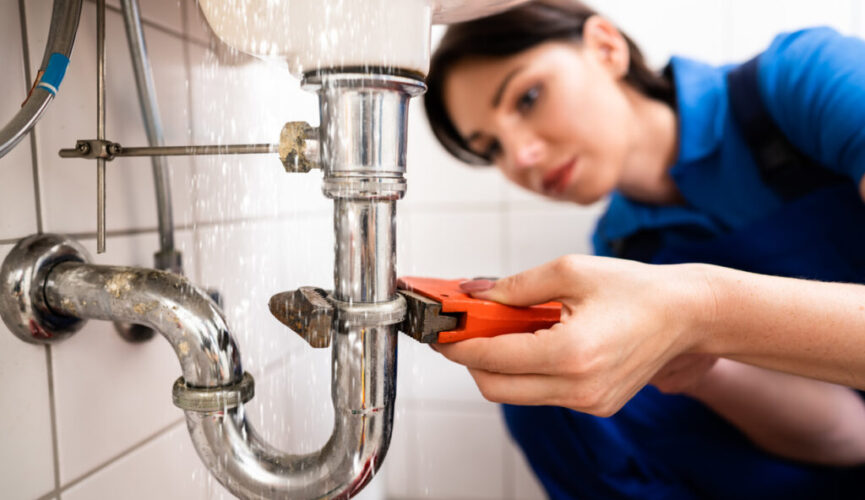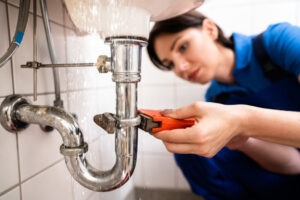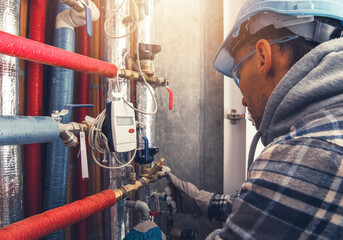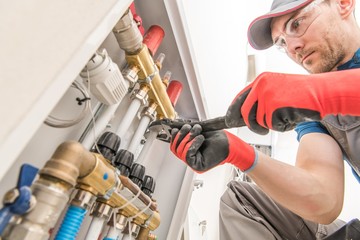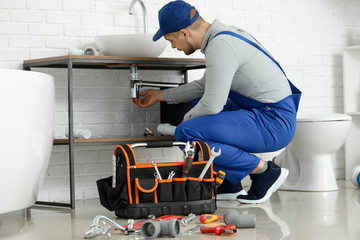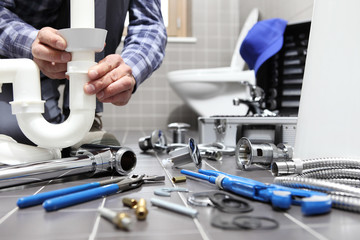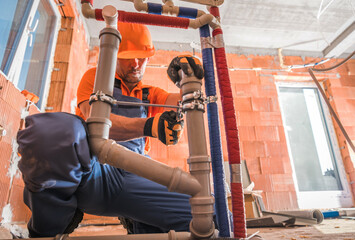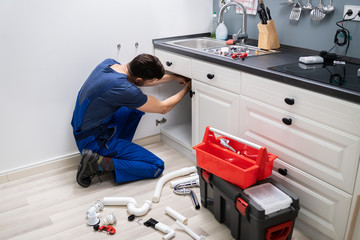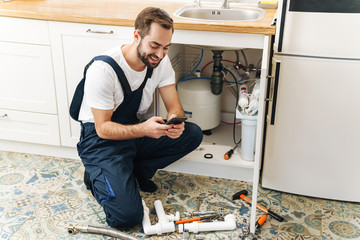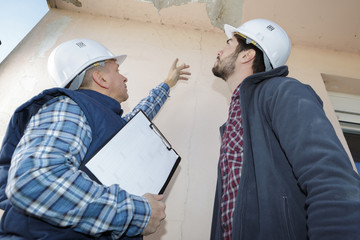Water Filtration Atlanta keeps fluids like water and chemicals pure by removing unwanted particles from them. These particles can clog pipes and lead to equipment malfunctions or even failure.
Physical filtration uses a barrier to separate the particles physically. This can be anything from a simple mesh filter to a ceramic with a complex pore structure that filters down to 1 micron (removing cysts like giardia and cryptosporidium). There are many types of mechanical filters.

A pre-filter is one of the most important parts of a water filtration system. It works to eliminate large particles from the water, preventing them from damaging other filters or clogging the entire system. Pre-filters typically use a variety of mechanical filtration methods. One of the most popular is a sediment filter that eliminates dirt, rust, silt, and other suspended solids from the water.
Pre-filters can also remove biological contaminants from the water supply. These are called biofouling and can be caused by microorganisms, plants, algae, or other living organisms that grow on or in a filtration membrane’s surfaces and pores. This can cause the membrane to become less efficient as it becomes covered with biofilm. Biological contamination can also resist normal cleaning methods such as back washing or applications of biocides like chlorine.
By removing these larger particles, a pre-filter protects the filtration membrane and other filters in the water treatment system from damage and extends their lifespan. A pre-filter is often used in critical environments such as clean rooms to ensure the integrity of the filtration process and the quality of the air being breathed.
The best pre-filters are made of a mixture of materials to ensure the most effective filtration. A common combination is a cellulose pre-filter and an activated carbon filter. Both are derived from organic materials with high carbon content, such as wood, coal, and coconut shells. When heated, these materials create char, which then binds to impurities in the water to remove them.
Another great pre-filter is the multi-cyclone style, such as that used in the Waterco MultiCyclone water filtration system. The MultiCyclone consists of multiple chambers that spin the water, throwing the sediment against the chambers’ sides and allowing the clean water to flow upwards toward the filtration membrane. The best part about the pre-filter is that the transparent collection base lets you see when it is time to drain and clean it. When you are done, open the valve to drain it and close it to begin the filtration process again!
Carbon filters are a great way to remove organic chemicals and unwanted pollutants. Carbon’s pore structure, size, and surface area make it extremely effective at adsorbing and holding chemicals.
Activated carbon is made by heating raw materials like coconut shells or coal to form a charred product. After this, additional processing is completed to increase the surface area and make it better able to trap molecules. This is done by injecting it with hot air or steam, which creates an even greater number of tiny pores on the carbon’s surface. As a result, a single gram of activated carbon has thousands of square meters of surface area, which is plenty of space for the harmful chemicals to bond with.
After the chemicals are trapped on the carbon’s surface and drawn into its interior through physical or chemical reactions, they are trapped inside its numerous pore holes. The size of the pore hole determines what type of molecule it can hold. Large pores can capture larger, heavier chemicals, while smaller pore sizes pick up volatile organic compounds (VOCs).
There are many types of activated carbon available for different applications. Your General Carbon representative can help you select the right carbon for your system by considering factors such as the expected operating temperature, polarity of the chemicals to be removed, and if the carbon will be used in a liquid or vapor application.
Depending on your application, there are also various carbon particle sizes to consider. Larger particles are typically used for vapor applications to reduce the pressure drop, while smaller particles are favored for liquid applications. It would be best to consider whether your project will use powdered or granular activated carbon.
Lastly, you need to consider the ash content of the carbon. This is important because a high ash content can decrease the carbon’s ability to absorb and hold chemicals and cause harmful metal oxides. This is why it is important to talk with your General Carbon representative before selecting the correct activated carbon for your project.
The post-filter in a water treatment system removes any remaining contaminants, organic compounds, and unpleasant odors that may still be present after passing through the primary filtering stages. These filters usually contain activated carbon, a porous material with high adsorption capability, and can effectively trap these impurities from your water. Typically, these filters are used with sediment and copper-zinc (KDF) filters to ensure that your drinking water is free of all harmful substances and has the best taste and quality possible.
Activated carbon filtration is one of the most effective water treatment methods available. Its highly porous structure provides a large surface area that attracts and binds with your drinking water’s chemicals, bacteria, toxins, and other impurities. Once these compounds are bound, they can no longer enter your body or be passed through your dialysis membranes.
This process also improves the overall water quality by reducing unpleasant odors and chemical residues. In addition, it can help ease the concentration of heavy metals like lead and mercury in your drinking water. Heavy metals can have severe health effects if they are consumed over time.
It is important to note that the removal of these harmful compounds does not guarantee the safety of your drinking water. You should always perform additional testing and analysis before drinking any filtered water.
Aside from improving the quality of your drinking water, a carbon post-filter can increase the lifespan of your dialysis membranes. This is because it can prevent the build-up of cytokines in your bloodstream, which can cause damage to your membranes and interfere with your treatment.
When selecting a carbon post-filter for your home, it’s important to consider its contaminant removal capabilities, size and filtering capacity, flow rate, and water pressure compatibility. These factors will determine how long your filters last and how frequently they must be replaced. It is also important to remember that carbon filters should be replaced as soon as the hematocrit reading rises, as this may indicate that the filter is clogged with cytokines.
Membrane filtration is used in various applications to remove contaminants from liquids or gases. It consists of a semi-permeable membrane that allows certain particles to pass through while trapping others. This process is similar to the cell membrane, which protects living cells and keeps out harmful substances. The most common types of membrane filtration include micro- and ultrafiltration, nanofiltration, and reverse osmosis.
A membrane’s pore size structure defines what kinds of particles it retains. This allows the membrane to be categorized for different filtration processes and industries. For example, microfiltration is often used to separate macromolecules from a solution or colloids from a dispersion. On the other hand, ultrafiltration is primarily used to remove bacteria. The permeability of a membrane is also defined by its MWCO (Molecular Weight Cutoff), which determines its ability to reject or retain molecules.
When water is pumped through a membrane filter, only a fraction is converted to permeate. This is because unwanted constituents clog the membrane surface. This is why it’s important to have a system that can prevent and remove clogs from the membrane. This is typically done by supplying pressure to the dirty side of the membrane, which helps overcome the osmotic pressure created between the clean and dirty sides of the membrane.
Unlike traditional methods, membrane filtration produces no filter cake and requires less energy. It also offers consistent and reliable filtration results and constant compliance with environmental regulations.
Another benefit of membrane filtration is that it reduces the waste generated, which means it can be reused for other industrial purposes or sold for irrigation. This helps you save money by reducing operating costs (OPEX) and overall energy consumption.
Moreover, membrane filtration has a lower capital cost than other filtration technologies. This makes it a more economical choice for a wide range of applications. This includes separating and purifying ions and molecules, treating water for drinking and irrigation, and producing food and beverage products. In addition, membrane filtration is particularly effective in boosting product yields by removing bacteria and other microbes from products like bottled water, milk, cheese, and juices.

